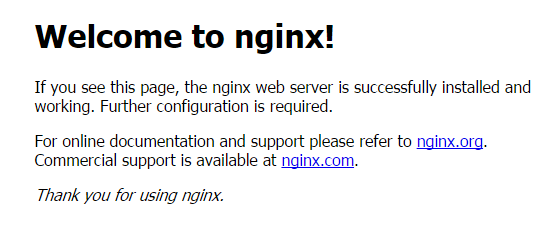简介
Netstat 命令用于显示各种网络相关信息,如网络连接,路由表,接口状态 (Interface Statistics),masquerade 连接,多播成员 (Multicast Memberships) 等等。
输出信息含义
执行netstat后,其输出结果为
Active Internet connections (w/o servers)
Proto Recv-Q Send-Q Local Address Foreign Address State
tcp 0 2 210.34.6.89:telnet 210.34.6.96:2873 ESTABLISHED
tcp 296 0 210.34.6.89:1165 210.34.6.84:netbios-ssn ESTABLISHED
tcp 0 0 localhost.localdom:9001 localhost.localdom:1162 ESTABLISHED
tcp 0 0 localhost.localdom:1162 localhost.localdom:9001 ESTABLISHED
tcp 0 80 210.34.6.89:1161 210.34.6.10:netbios-ssn CLOSE
Active UNIX domain sockets (w/o servers)
Proto RefCnt Flags Type State I-Node Path
unix 1 [ ] STREAM CONNECTED 16178 @000000dd
unix 1 [ ] STREAM CONNECTED 16176 @000000dc
unix 9 [ ] DGRAM 5292 /dev/log
unix 1 [ ] STREAM CONNECTED 16182 @000000df
从整体上看,netstat的输出结果可以分为两个部分:
一个是Active Internet connections,称为有源TCP连接,其中"Recv-Q"和"Send-Q"指%0A的是接收队列和发送队列。这些数字一般都应该是0。如果不是则表示软件包正在队列中堆积。这种情况只能在非常少的情况见到。
另一个是Active UNIX domain sockets,称为有源Unix域套接口(和网络套接字一样,但是只能用于本机通信,性能可以提高一倍)。
Proto显示连接使用的协议,RefCnt表示连接到本套接口上的进程号,Types显示套接口的类型,State显示套接口当前的状态,Path表示连接到套接口的其它进程使用的路径名。
常见参数
-a (all)显示所有选项,默认不显示LISTEN相关
-t (tcp)仅显示tcp相关选项
-u (udp)仅显示udp相关选项
-n 拒绝显示别名,能显示数字的全部转化成数字。
-l 仅列出有在 Listen (监听) 的服務状态
-p 显示建立相关链接的程序名
-r 显示路由信息,路由表
-e 显示扩展信息,例如uid等
-s 按各个协议进行统计
-c 每隔一个固定时间,执行该netstat命令。
提示:LISTEN和LISTENING的状态只有用-a或者-l才能看到
实用命令实例
1. 列出所有端口 (包括监听和未监听的)
列出所有端口 netstat -a
# netstat -a | more
Active Internet connections (servers and established)
Proto Recv-Q Send-Q Local Address Foreign Address State
tcp localhost: *:* LISTEN
udp *:bootpc *:*
Active UNIX domain sockets (servers and established)
Proto RefCnt Flags Type State I-Node Path
unix [ ACC ] STREAM LISTENING /tmp/.X11-unix/X0
unix [ ACC ] STREAM LISTENING //run/acpid.socket
列出所有 tcp 端口 netstat -at
# netstat -at
Active Internet connections (servers and established)
Proto Recv-Q Send-Q Local Address Foreign Address State
tcp localhost: *:* LISTEN
tcp localhost:ipp *:* LISTEN
tcp *:smtp *:* LISTEN
tcp6 localhost:ipp [::]:* LISTEN
列出所有 udp 端口 netstat -au
# netstat -au
Active Internet connections (servers and established)
Proto Recv-Q Send-Q Local Address Foreign Address State
udp *:bootpc *:*
udp *: *:*
udp *:mdns *:*
2. 列出所有处于监听状态的 Sockets
只显示监听端口 netstat -l
# netstat -l
Active Internet connections (only servers)
Proto Recv-Q Send-Q Local Address Foreign Address State
tcp localhost:ipp *:* LISTEN
tcp6 localhost:ipp [::]:* LISTEN
udp *: *:*
只列出所有监听 tcp 端口 netstat -lt
# netstat -lt
Active Internet connections (only servers)
Proto Recv-Q Send-Q Local Address Foreign Address State
tcp localhost: *:* LISTEN
tcp *:smtp *:* LISTEN
tcp6 localhost:ipp [::]:* LISTEN
只列出所有监听 udp 端口 netstat -lu
# netstat -lu
Active Internet connections (only servers)
Proto Recv-Q Send-Q Local Address Foreign Address State
udp *: *:*
udp *:mdns *:*
只列出所有监听 UNIX 端口 netstat -lx
# netstat -lx
Active UNIX domain sockets (only servers)
Proto RefCnt Flags Type State I-Node Path
unix [ ACC ] STREAM LISTENING /maildrop
unix [ ACC ] STREAM LISTENING /cleanup
unix [ ACC ] STREAM LISTENING /ifmail
unix [ ACC ] STREAM LISTENING /bsmtp
3. 显示每个协议的统计信息
显示所有端口的统计信息 netstat -s
# netstat -s
Ip:
total packets received
with invalid addresses
forwarded
incoming packets discarded
incoming packets delivered
requests sent
Icmp:
ICMP messages received
input ICMP message failed.
Tcp:
active connections openings
failed connection attempts
connection resets received
Udp:
packets received
packets to unknown port received.
.....
显示 TCP 或 UDP 端口的统计信息 netstat -st 或 -su
# netstat -st
# netstat -su
4. 在 netstat 输出中显示 PID 和进程名称 netstat -p
netstat -p 可以与其它开关一起使用,就可以添加 “PID/进程名称” 到 netstat 输出中,这样 debugging 的时候可以很方便的发现特定端口运行的程序。
# netstat -pt
Active Internet connections (w/o servers)
Proto Recv-Q Send-Q Local Address Foreign Address State PID/Program name
tcp ramesh-laptop.loc: .:www CLOSE_WAIT /firefox
tcp ramesh-laptop.loc: lax:www ESTABLISHED /firefox
5. 在 netstat 输出中不显示主机,端口和用户名 (host, port or user)
当你不想让主机,端口和用户名显示,使用 netstat -n。将会使用数字代替那些名称。
同样可以加速输出,因为不用进行比对查询。
# netstat -an
如果只是不想让这三个名称中的一个被显示,使用以下命令
# netsat -a --numeric-ports
# netsat -a --numeric-hosts
# netsat -a --numeric-users
6. 持续输出 netstat 信息
netstat 将每隔一秒输出网络信息。
# netstat -c
Active Internet connections (w/o servers)
Proto Recv-Q Send-Q Local Address Foreign Address State
tcp ramesh-laptop.loc: ---.ama:www ESTABLISHED
tcp ramesh-laptop.loc: .:www CLOSING
tcp ramesh-laptop.loc: server----:www ESTABLISHED
tcp ramesh-laptop.loc: .:www CLOSING
^C
7. 显示系统不支持的地址族 (Address Families)
netstat --verbose
在输出的末尾,会有如下的信息
netstat: no support `AF IPXnetstat: no support `AF AX25netstat: no support `AF X25netstat: no support `AF NETROM
8. 显示核心路由信息 netstat -r
# netstat -r
Kernel IP routing table
Destination Gateway Genmask Flags MSS Window irtt Iface
. * . U eth2
link-local * . U eth2
. . UG eth2
注意: 使用 netstat -rn 显示数字格式,不查询主机名称。
9. 找出程序运行的端口
并不是所有的进程都能找到,没有权限的会不显示,使用 root 权限查看所有的信息。
# netstat -ap | grep ssh
tcp dev-db:ssh .: CLOSE_WAIT -
tcp dev-db:ssh .: CLOSE_WAIT -
找出运行在指定端口的进程
# netstat -an | grep ':80'
10. 显示网络接口列表
# netstat -i
Kernel Interface table
Iface MTU Met RX-OK RX-ERR RX-DRP RX-OVR TX-OK TX-ERR TX-DRP TX-OVR Flg
eth0 BMU
eth2 BMRU
lo LRU
显示详细信息,像是 ifconfig 使用 netstat -ie:
# netstat -ie
Kernel Interface table
eth0 Link encap:Ethernet HWaddr :::::
UP BROADCAST MULTICAST MTU: Metric:
RX packets: errors: dropped: overruns: frame:
TX packets: errors: dropped: overruns: carrier:
collisions: txqueuelen:
RX bytes: ( B) TX bytes: ( B)
Memory:f6ae0000-f6b00000
11. IP和TCP分析
查看连接某服务端口最多的的IP地址
wss8848@ubuntu:~$ netstat -nat | grep |awk |awk -F: |sort|uniq -c|sort -nr|head -
TCP各种状态列表
wss8848@ubuntu:~$ netstat -nat |awk
established)
Foreign
LISTEN
TIME_WAIT
ESTABLISHED
TIME_WAIT
SYN_SENT
先把状态全都取出来,然后使用uniq -c统计,之后再进行排序。
wss8848@ubuntu:~$ netstat -nat |awk |sort|uniq -c
ESTABLISHED
FIN_WAIT1
Foreign
LAST_ACK
LISTEN
SYN_SENT
TIME_WAIT
established)
最后的命令如下:
netstat -nat |awk '{print $6}'|sort|uniq -c|sort -rn
分析access.log获得访问前10位的ip地址
awk '{print $1}' access.log |sort|uniq -c|sort -nr|head -10
参考资料:http://blog.maxiang.net/10-netstat-command-examples/139/
http://www.ipcpu.com/2011/07/netstat-linux/
http://www.cnblogs.com/ggjucheng/archive/2012/01/08/2316661.html





